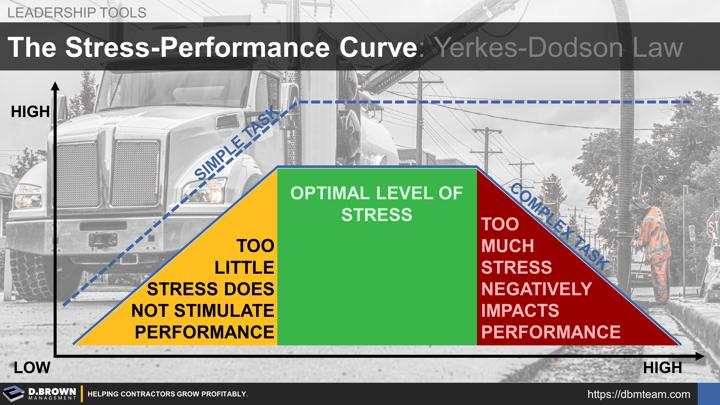Stress for most people reading this will involve some combination of the following factors:
- Time to complete the task - for instance a complex project proposal due in 3 days.
- Money or other things at risk - for instance; an interview for a complex project is coming up in 3 days and if you don’t win the project then you will have to lay off a project team as well as likely face a bad quarter.
- Overall workload - for instance; having the proposal and interview for the project in 3 days while still having the responsibilities for managing other projects and a team of people.
For a more complex task such as putting together the schedule for a two-year project, too much stress will impact productivity and quality leading to fatigue then burnout. Too little stress won’t create the stimulation required for optimum productivity.
For a simpler task such as the assembly of the final proposal documents into books is not nearly as impacted by stress with the performance curve going up and generally staying up even with high levels of stress.
Consistently too much stress on the team as a whole could be a growth inflection point and could be due to overload which is defined as one of "The Three Enemies of Lean" in the lean body of knowledge.
Know yourself; know your team and work to keep everyone at optimum stress levels for growth.

